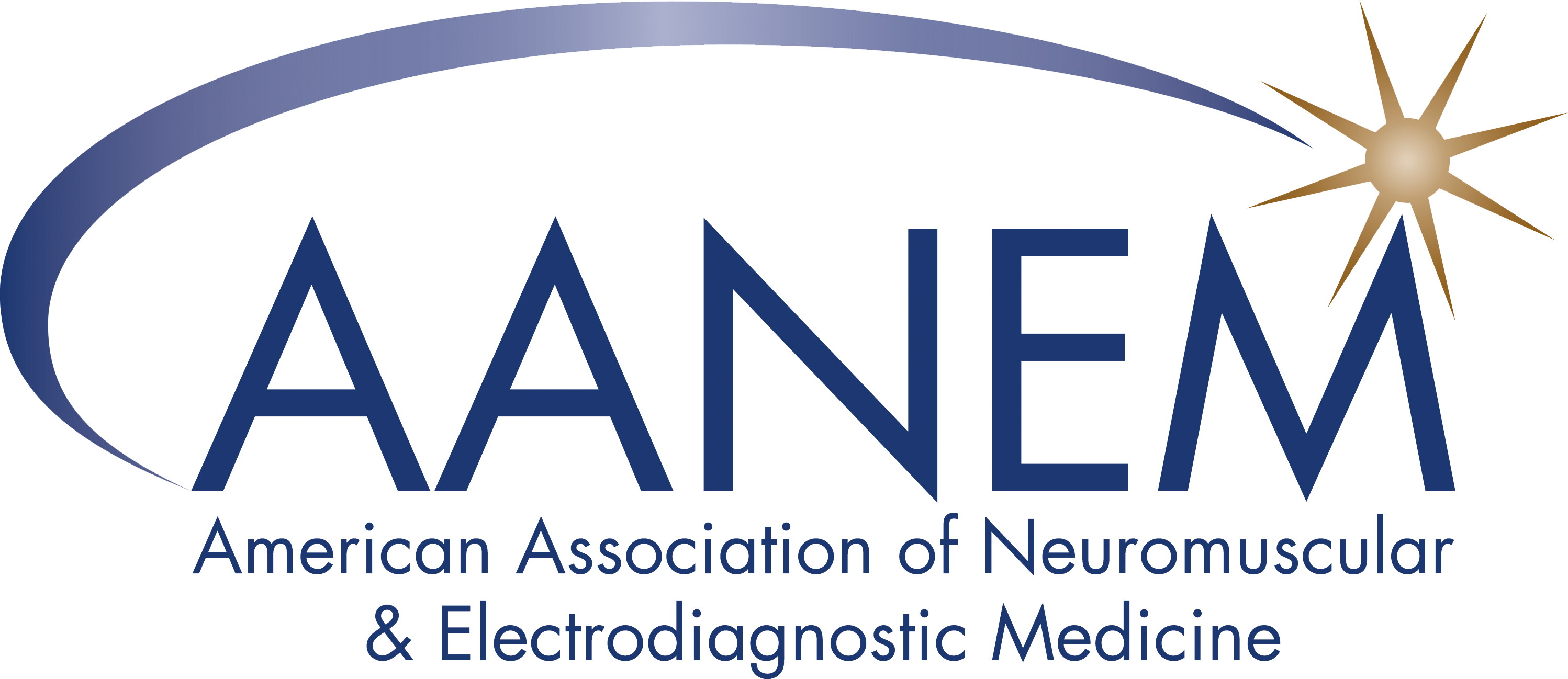Charcot-Marie-Tooth Disease
Currently, no definitive treatment exists for CMT. It cannot be stopped or reversed, but it can reach a point where the progression steadies itself. Current treatment consists of physical therapy, stretching, strengthening, moderate activity, and braces. Orthopedic surgery may help manage the symptoms. Most people with CMT can walk throughout their life and are self-sufficient. CMT is generally not fatal or life-threatening. In 2011, the AANEM partnered with the Hereditary Neuropathy Foundation to host a course at the AANEM Annual Meeting to help educate physicians about CMT. A course book on CMT can be found through the AANEM Marketplace or via the Hereditary Neuropathy Foundation (HNF) website. In addition, learn more about CMT patient care on the HNF website https://www.hnf-cure.org/patient-care/. What is Charcot-Marie-Tooth Disease?
Charcot-Marie-Tooth Disease (CMT) or hereditary motor sensory neuropathy (HMSN) is an inherited, progressive disease of the nerves with weakness and numbness more pronounced in the legs than the arms. The nerves stop sending messages to different areas of the body, like the hands and feet, because parts of the nerve cells deteriorate. The muscles in the hands and feet get weak because they no longer receive messages from the nerves, and therefore are not being used. Symptoms vary greatly. There can be fatigue, pain, lack of balance, feeling, reflexes, sight and hearing. There can be high arched feet, hammer toes, foot drop, and foot deformities, and possibly scoliosis.
Who gets Charcot-Marie-Tooth Disease?
CMT affects an estimated 1 in 2,500 people in the United States and 2.6 million people worldwide, although experts believe the number could be much higher. Most often it is inherited. The chance of offspring getting CMT is 50% if one parent has it. However, it can also be contracted randomly.
How is Charcot-Marie-Tooth Disease diagnosed?
Those with CMT need to undergo a complete clinical evaluation. This evaluation should check for muscle atrophy, weakness, and sensory responses, and should include a detailed patient history. EMGs and motor nerve conduction velocities can help diagnose the type of CMT as well as measure its severity. Specialized DNA blood tests are helpful in some cases.
How is Charcot-Marie-Tooth Disease treated?
Can any medications worsen a CMT patient's neuropathy and impact strength, sensation, and function?
Symptoms of CMT can be dormant, becoming visible if the person is exposed to a neurotoxin. For patients already diagnosed with CMT, neurotoxins can make the symptoms worse, so patients should avoid certain drugs. Watch the following video by AANEM member Dr. Louis Weimer (director of an HNF Center of Excellence) for further information, and review this fact sheet, both courtesy of the Hereditary Neuropathy Foundation.
More Information
Charcot-Marie-Tooth Association
National Society for Genetic Counselors (NSGC)
Hereditary Disease Foundation
Hereditary Neuropathy Foundation
Alliance of Genetic Support Groups
Help Fund Research
The foundation funds important research and helps support education through awards and fellowship funding. Donate today and 100% of your donation will be used to support these initiatives.
Find Support
AANEM's membership and accredited laboratory directories can help patients find qualified professionals for diagnosis and treatment.
Find a Doctor Find an Accredited Lab